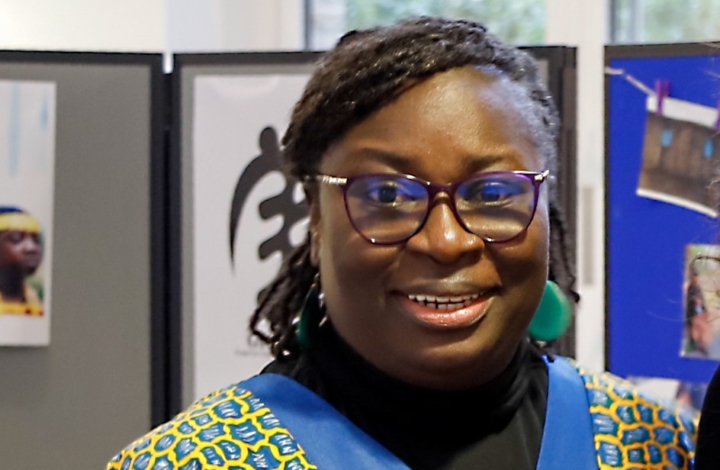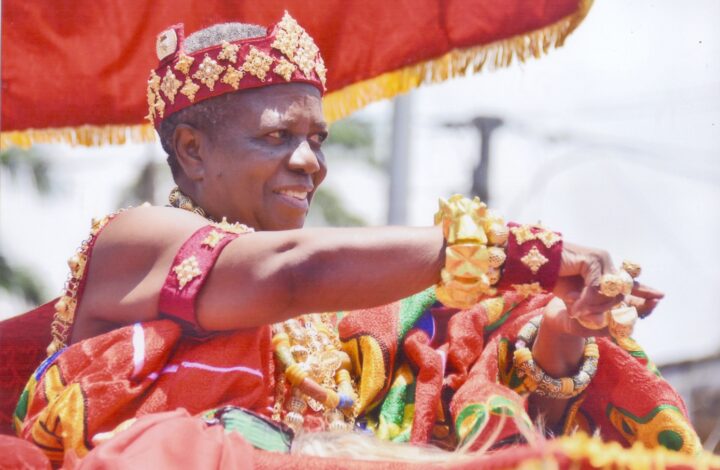Felicity Apaah
NIAS fellow

Project title
Nana Kow Ackon V: The Making of a ‘Woman King’ in Ghana
Research question
How are the role and place of a ‘woman chief’ in a matriarchal setting contested within a macro patriarchal Ghanaian society?
Project description
Felicity Apaah uses the biography of Nana Kow Ackon V—Senior Divisional Chief of the Cape Coast Traditional Area and one of only ten female chiefs in Ghana—as a case study to explore female traditional authority and the spiritual female principle in a matrilocal society. It situates these within the broader patriarchal context of Ghanaian society.
Historically, in pre-colonial West Africa, women and the spiritual female principle played a central role in the political and spiritual life of their communities. However, colonial rule systematically undermined this influence, leading to a marked decline in women’s political and spiritual authority.
Within Akan tradition, two stools represent political authority: one for the male chief and one for the Queen Mother. While male chieftaincy remains dominant in Ghana’s patriarchal system, certain Akan societies recognise women as chiefs. Nana Kow Ackon V exemplifies this rare tradition. Her role demonstrates how traditional knowledge and spiritual frameworks rooted in the past continue to shape contemporary understandings of female leadership and the spiritual female principle in Ghana.
Selected publications
- Apaah, F. (2024). Preaching. In A. Adogame, C. Bauman, D. Parsitau, & Jeaney Yip (Eds.), The Routledge Handbook of Megachurches (pp. 233-246). Routledge Press.
- Norton, A. & Apaah, F. (2024). Combatting COVID-19 and ‘Possessing the Nations:’ Insights from Ghana’s Megachurches. Journal of Religion in Africa, 54 (2), 142-166. https://doi.org/10.1163/15700666-12340298.
- Apaah, F. (2023). “Tete wɔ bi ka, tete wɔ bi kyerɛ”: Pius Agyemang’s Sacred Music and Ghana’s Catholic Liturgical Inculturation. Journal of Africana Religions, 11 (1), 72-89, https://doi.org/10.5325/jafrireli.11.1.0077.
